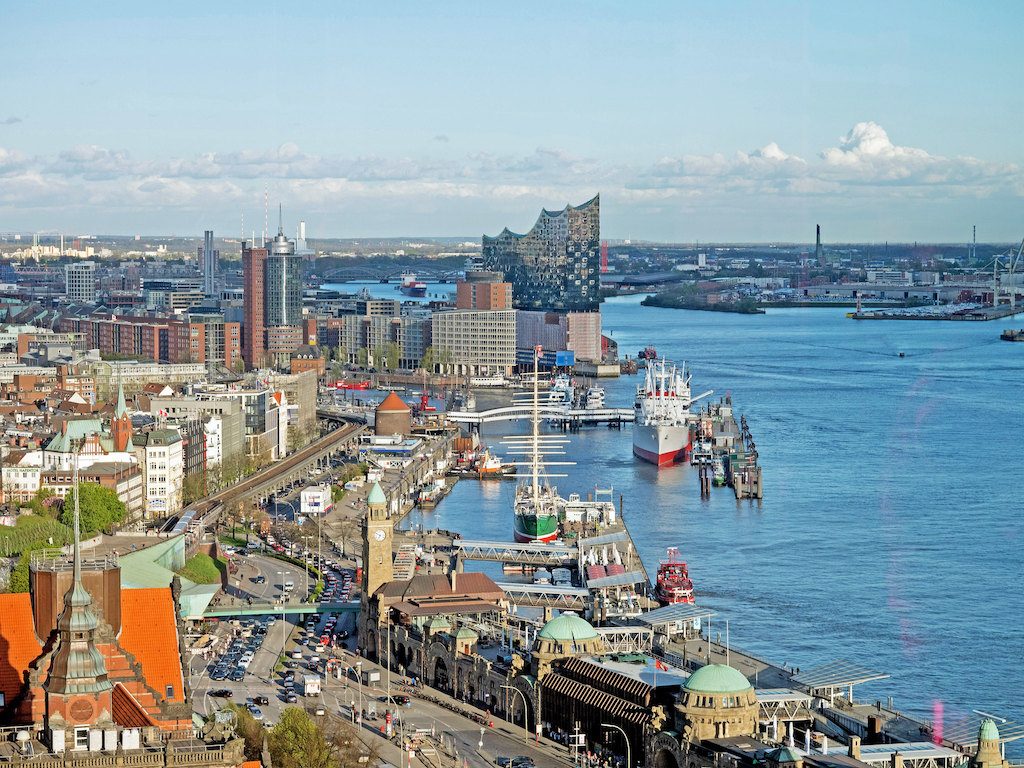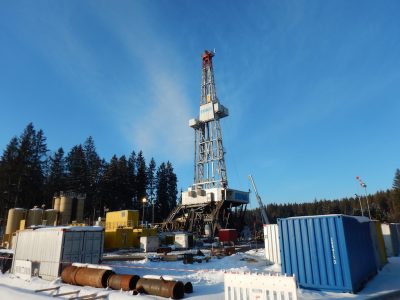Geothermal part of project to explore renewables-based heating in city of Hamburg
An innovative project has won as part of a competition by Germany's Federal Ministry of Economics. With that Hamburg's municipal energy provider can now secure subsidies for a planned project to enable renewable energy based district heating supply, including geothermal.
In July of this year, German Federal Minister of Economics Peter Altmaier announced a project by utility HAMBURG ENERGIE as one of the winners of the ideas competition “Reallabore der Energiewende”. As a result, Hamburg’s municipal energy provider now has the opportunity to secure subsidies for a future project that will enable a reliable and affordable district heating supply based on renewable energies.
To this end, the company intends to prototype a concept in the district of Wilhelmsburg, which will serve as a blueprint for the heat supply of the future for Hamburg and beyond. Around 90 consortia from all over Germany submitted their project sketches to the ideas competition as part of the 7th Energy Research Program of the Federal Ministry of Economics (BMWi). In total, funding for the period from 2019 to 2022 of up to EUR 100 million per year has been awarded.
“We are very happy about the award for our concept”, explains Michael Prinz, Managing Director of HAMBURG ENERGIE following the decision of the BMWi. “With our project, we are delivering a groundbreaking concept for heat conversion based on renewable energy, especially geothermal energy, and a local heating marketplace. The Reallabor funding helps us to put this unique project into practice. ”
Decentralized solutions for energy-optimized neighborhoods
HAMBURG ENERGIE sent its “Integrated HeatWind Wilhelmsburg” project, or IW3 for short, to the BMWi nationwide ideas competition. The aim of this is to establish a decentralized heat supply for the Wilhelmsburg district of Hamburg, which does not require fossil fuels. For this purpose, heat, electricity and mobility are intelligently linked with each other in the rapidly growing district.
“With our IW3 concept, we will be one of the active designers of Wärmewende in Hamburg,” said Prinz, adding: “For us, without heat – no energy turnaround – and we also think in terms of neighborhood. Our aim is to set up a new concept that, starting from the Hanseatic city of Hamburg, can also exude a strong appeal throughout the industry. ”
Hamburg’s Environment Senator and Chairman of the Supervisory Board of HAMBURG ENERGIE, Jens Kerstan, is pleased with the positive decision from Berlin: “This project from Hamburg Energie has the potential to become a model example of the heat and energy transition in urban areas throughout Germany. Once again, Hamburg Energie is playing a pioneering role in innovative energy transition projects. The grants allow a faster transfer of research into practice to test new technologies and solutions. For Hamburg another important step towards a climate-friendly city. This underlines Hamburg’s claim to be a pioneer in the field of heating. ”
Wilhelmsburg as a model for the energy transition in urban space
HAMBURG ENERGIE already operates a district heating network for 3,000 households in the Wilhelmsburg district, which is fed by various energy sources and controlled intelligently. Building on the existing technology components, the urban energy provider is striving for an energy-efficient and, in the future, CO2-neutral supply of the Elbe island Wilhelmsburg with its project IW3 – Integrated Heat and Power Wilhelmsburg. HAMBURG ENERGIE uses the intelligent coupling of the sectors heat, electricity and mobility. A local marketplace bundles all energy producers and consumers and enables a cost-efficient supply of the neighborhoods.
“In the first step, up to 10,000 residents will be supplied with local heat,” explains Prinz. “However, our long-term goal is to heat up Wilhelmsburg in a regenerative manner.” Hamburg’s large-scale urban development program is expected to enable up to 70,000 people to live on the Elbe island.
A central component of the IW3 project is the regenerative heat supply. In addition to existing regenerative producers such as wind power or solar thermal energy, the use of geothermal heat forms a basis of production. By means of the additional integration of cross-sectoral technologies such as heat pumps and power-to-heat plants as well as the use of renewable electricity, a CO2-neutral supply is possible in the future. In order to be able to use summer heat surpluses in winter, the establishment of a seasonal store, a so-called aquifer store, is essential. This means that different energy demands with different energy availabilities can be efficiently reconciled with each other.
In addition to HAMBURG ENERGIE as lead partner, other project partners are closely involved in the following detailed design and implementation: Geothermie Wilhelmsburg GmbH (GTW), VNG AG Leipzig, Consulaqua Hamburg mbH, HIC Hamburg Institute Consulting GmbH, University of Applied Sciences (HAW) Hamburg and the Christian Albrechts University (CAU) to Kiel.
Source: Hamburg Energie release (pdf)


















